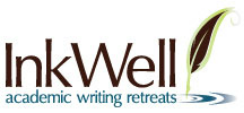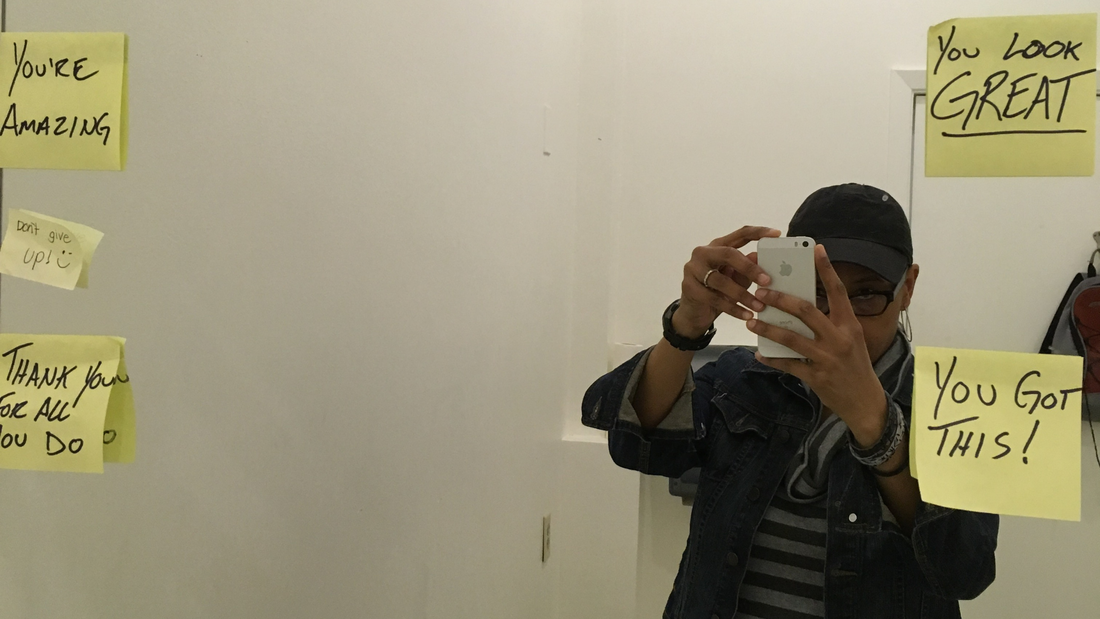|
“Whatever artistry may occur within the manuscript; the magic happens for me in the last draft. Whatever I have been resistant to say must finally be said. In the end, I see where my pencil has been leading me." - Terry Tempest Williams So, last month we talked about how to finish a writing project. As usual, I said very little about the writing itself. There were no hacks to help you find more time. No templates to help you sketch out your work schedule. Instead, it was all, “Feel this. Reflect on that. Come to understand the other.” If you’ve been getting InkWell’s loveletters for a while, you know there’s nothing surprising about that. It’s All Feelings, All The Time around here. What may have been surprising though, was: “Step 3. Decide to really finish the book.” No more detail than that. But what does that mean, exactly? We often think that finishing involves fixing everything that’s “wrong” with the current draft. It's that moment we’ll fill all the holes and eliminate all the weaknesses, so that no one can say anything to make us doubt ourselves. That’s where I was before I got my editor’s note: I felt that once I added, elaborated, modified, and expanded, the manuscript (and by extension, I) would finally be good enough. But all that expansion and elaboration? That’s revising. It’s what happens when we take something imperfect and modify it to make it better. Finishing, on the other hand, involves releasing the manuscript. It’s what happens when we take something imperfect (yes, still), and reconcile ourselves to the fact that we won’t be making it better. Finishing is the moment we stop perfecting the manuscript and begin accepting it's that manuscript. And it is scary af. * The tricky thing about deciding to finish, is that we don’t do it just once. It’s something we have to keep doing over and over again. Here are a couple times you might find that happens for you. One moment we decide to finish is when we create a revision task list. For example, after going through all the reviews and my own blood red, all caps, excessively exclamatory track-changes remarks (e.g., “you canNOT!!!! Send out the book out without…”) I had pages of bullets describing what I felt needed to be done in order for the book to be ready for the world. I then had to pare that list down into something that a human could actually complete in 16 weeks. That act was a key finishing moment for me, because I had to stop pretending that I could do everything I wanted. I had to move from a vague notion that I had “revisions to make” to a much smaller and more precise vision of what that work would look like, day to day. Yet another moment of deciding to finish is when we take those tasks and convert them into a revision plan. In other words, we (sorry, loves) schedule when we’re going to get all that work done. Ogh. This is when it really starts to hurt. Even though I’d already pared down the list, I found that more things had to go. When we start making a schedule, we’re forced to identify those tasks that are central to the manuscript—the things without which we feel we cannot say what we really wanted to say. A third moment we decide to finish is when we actually sit down to follow that revision plan. That’s because writing can whip up feelings that tempt us to do more than what’s on our tasklist. For me, that happens when I’m working on those paragraphs that describe the existing literatures and illuminate how I’m using and distinguishing myself from them. This kind of work raises all my insecurities—so that my impulse is to overread so I can craft single sentences that illustrate my mastery of tangential lines of thought. Then all of the sudden, I look up and notice what I’m doing. And I have to remind myself of what work is actually necessary and what work is me overcompensating because I’m afraid of being criticized. While fear and anxiety can pull us away from finishing, so can feelings of delight. Like when I share parts of the book with people I love and trust and they give me magnificent feedback about how I could refine the work: They offer subtle turns of phrase. They extend lines of thought. Not only are they giving me great ideas, but talking with them is the antidote to how I feel when worrying about the literature. But the fact remains, we can’t give our attention to everything. Some threads we get to pursue. But others, we have to put away—despite how much it pains us. When we decide to finish, we of course have to do some revising. But we have to prioritize letting go, not lingering over. And we have to do that, not just once. Not just twice. But every time we sit down to write. * How? How do we bring ourselves back to finishing when it’s so tempting to keep revising? One way to is to remind ourselves of the purpose of the manuscript—and only work on the few changes that serve that purpose. This is easier said than done, of course. Especially for those of you who are working on a tenure book. It can seem, when you’re at that stage, that the purpose of the book is to prove that you and your work are unimpeachable. But even tenure books have something else to them besides duty. What was the thing that first got you excited about your topic? What was that amazing book you read that made you think “oh I wanna write a book like that.” When you know what your purpose is, it’s easier to hone in on what the book actually needs in order for that purpose to be fulfilled. That’s what makes it easier to say “Enough, already,” and put the rest aside. I was having trouble remembering the purpose of my manuscript, until one day, I was trying to figure out what goes in the introduction vs. what goes in the preface. I decided to take a look at the press’s Author Guidelines to get some ideas. The preface, they said, should tell the reader the story of your book. Not the argument. Not the implications. Its story. When I read that line, I instantly remembered the day a young black woman came up to me after a campus retreat. She had tears in her eyes, and told me that she was the only black woman—not just in her department—but in her entire college. She was in one of the hard sciences, I think. Her profs had been urging her to “consider other options.” They were saying she couldn’t write. And it wasn’t until that day, as she’d sat in a room full of other black women struggling with writing, that she realized she wasn’t alone. She wasn’t incompetent. She just needed a little support. I started writing this book long before I met this woman. I honestly don’t even remember her name. But she’s the reason I worked on the book even when I was tired and discouraged. She’s the reason I’m hustling to finish, even though it seems like there is no time to work on this thing. When I get all caught up in my ego and anxiety, I see her in my head. I remember that my purpose is to write a book that helps that young woman see her writing struggles as totally normal, not her fault, and something she can absolutely overcome. Does the change I’m considering markedly improve my ability to make that point? If not, it gets the boot. What’s the story of your book? When was it conceived? Who helped usher it into the world? Who is that one person you hope will be changed by the words you put down on the page? Ask yourself those questions when you’re trying to finish the manuscript. If you’re caught up in perfecting, they can help steer you back to accepting: Knowing the story behind your manuscript helps you say, “Enough, already.” It helps you know in your bones that "Enough" refers to both your book and yourself. Want the monthly InkWell blog delivered straight to your inbox? Subscribe to Inkling, a bite-sized, monthly newsletter filled with ideas, inspiration, and information for academic writers.
Kris Yohe
3/9/2022 10:54:32 pm
OMG, thank you, Michelle! I am so excited that your book is getting finished, and I cannot wait to read it! And your words TOTALLY resonate for me—my own book (on Affrilachian poet Frank X Walker’s historical poetry) is getting closer to fruition. But actually FINISHING is just so hard. Your astute writing about the book’s story—that is so important and helpful.
Michelle
3/11/2022 08:28:43 am
Kris, I LOVE LOVE LOVE that we are finishing our books together. After all that we've talked about it! And I know your book's story is STRONG. Let's keep going!
Elaine
3/10/2022 02:51:45 am
Ever since the teaser in the last post (Step 3. Decide to really finish the book), I've been checking back every few days (even though I knew it was a monthly blog!) to see if Michelle's posted the next one yet! ....and then I thought, "maybe Michelle's skipping this month 'coz she DOES have a book to finish!" (and that would be OK). So THANK YOU Michelle for posting! Really insightful and resonated with me as I grapple with finishing my own manuscripts. Sending lots of good thoughts your way.
Michielle Boyd
3/11/2022 08:31:27 am
lol Elaine, I love the picture of you checking back for this post--and I'm glad it delivered! As you can see above, Kris and I (and many others) are finishing right along side you. You got this. (WE got this). Comments are closed.
|
|
© 2018 InkWell Academic Writing Retreats
|

